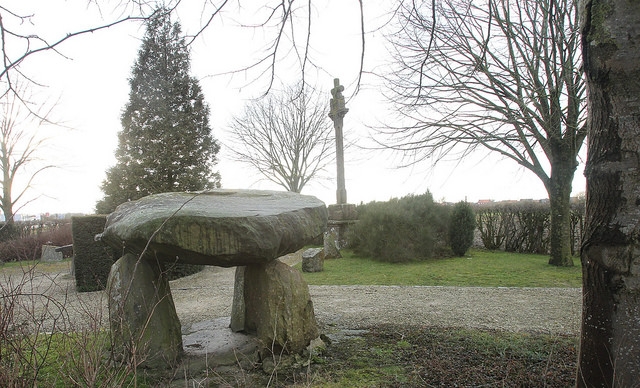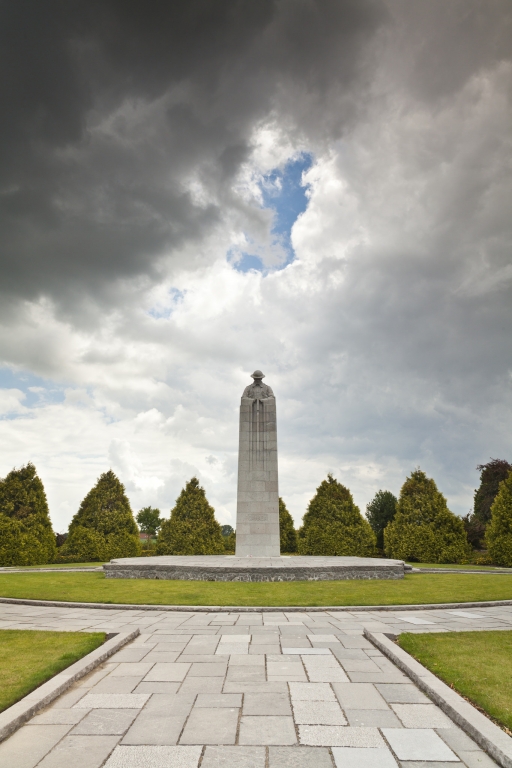Commemorations marking the first large-scale use of chemical weapons in the Great War will take place in Belgium a month from now, when the centenary of the Second Battle of Ypres is remembered.
There’ll be a series of events on April 22nd 2015, the 100th anniversary of the German attack, as well as an international conference; and an exhibition at In Flanders Fields Museum, Ypres, running though to the end of the summer.
The German Army launched its only Western Front offensive of 1915 on April 22nd, releasing clouds of chlorine gas from cylinders.
Thousands of French soldiers, including colonial Algerian troops, were forced to flee. Without protection, around 1,000 men died from asphyxiation and lung damage.
The attack, northeast of Ypres, opened a four-mile (six kms) gap in the Allied defences, but the Germans were unable to exploit their advantage.
Gas was used several more times by the German Army as it attempted to wrest control of the Ypres salient from British and French forces.
Canadian troops, fighting as part of the British Empire, played a prominent part in the Allied counter-attacks, which secured Ypres after a month of fighting.
Earlier in 1915, the German Army had experimented with the use of tear gas shells at the Battle of Bolimov in Poland against Russia, to little effect in freezing weather.
The gas attack at Ypres sparked outrage, but the British went on to use chlorine in their offensive at Loos in September 1915. Mustard gas was deployed by the Germans on the Ypres front in 1917.
April’s Centenary commemorations will include ceremonies at sites of special significance for Canada and France.
The statue of the Brooding Soldier, at ‘Vancouver Corner’ near St-Juliaan, remembers 2,000 soldiers of the Canadian First Division who fell holding the line around Ypres here in spring 1915.
Head bowed, the stone soldier maintains his vigil, both hands resting on the butt of his rifle.
Landscape architects used Canadian soil for the park around the monument. It was designed by Frederick Chapman Clemesha, who served with the Canadian Expeditionary Force, and erected in 1922.
The Breton Calvary Cross at Carrefour des Roses, Boezinge is a tribute to the French troops, many of them veteran Breton territorials, killed in the April 22nd gas attack.

Carrefour des Roses (Photo © Stad Ieper -Tijl Capoen)
In 1927, the 16th-century pink granite Calvary was moved from Brittany to Belgium in their memory.
A small Breton landscape was recreated around the cross, using a large dolmen and several menhirs donated by a Breton farmer and veteran.
Summary of Ypres Gas Attack Centenary events:
April 4th – August 30th 2015
Exhibition: ‘Gas! The Second Battle of Ypres’
In Flanders Fields Museum, Ypres
This exhibition tells the story of events on the Western Front from April to May 1915, using previously unseen footage, explanatory overviews, ‘iconic’ objects, and documents.
More information: In Flanders Fields
April 22nd 2015
International commemoration ceremonies – 100 years after the first gas attack
Ypres and Langemark-Poelkapelle
The formal ceremonial commemoration of the first massive use of gas in the First World War is restricted to invited guests.
But there will be three smaller ceremonies open to all:
5 pm Cross of Reconciliation, Steenstraat, Ypres
6.15 pm: Brooding Soldier monument, Sint-Juliaan, Langemark
8 pm: Menin Gate, Ypres
More information: Toerisme-Ieper
Belgian and French commemoration of the first gas attack
Lizerne and Boezinge
2 pm: Belgian commemoration at the Grenadiers Monument in Lizerne.
4 pm: Breton/French commemoration at the ‘Calvaire Breton’ (Breton Calvary) at the Carrefour des Roses in Boezinge.
More Information: Toerisme-Ieper
April 22nd – April 24th 2015
International conference: ‘A Century of Weapons of Mass Destruction: enough!’
Ypres
Speakers will discuss the history of weapons of mass destruction, efforts to outlaw them, and how existing laws could be strengthened.
More details can be found here.
April 30th – August 30th 2015
Exhibition: ‘The Smell of War’
De Lovie Castle, Poperinge
What does a war smell like? A scent circuit, created by international artists, will evoke the smell of fear, triumph, death, mud, and gunpowder.
More information: Poperinge 14-18
Further details of the gas attack centenary commemorations can also be found on the Gas! 2nd Battle of Ypres website.
Source: Visitflanders
Images courtesy of Visitflanders © Westtoer apb (Brooding Soldier); © Stad Ieper -Tijl Capoen (Carrefour des Roses)
Posted by: Peter Alhadeff, Centenary News
